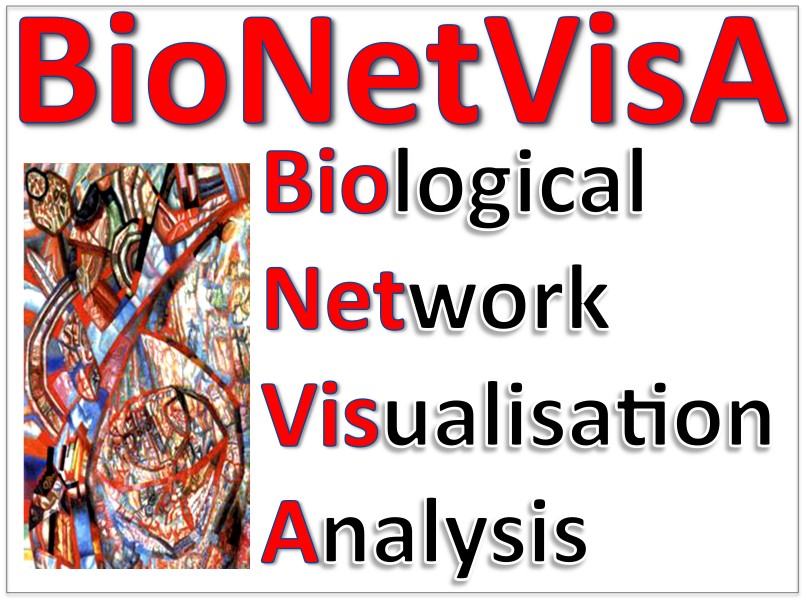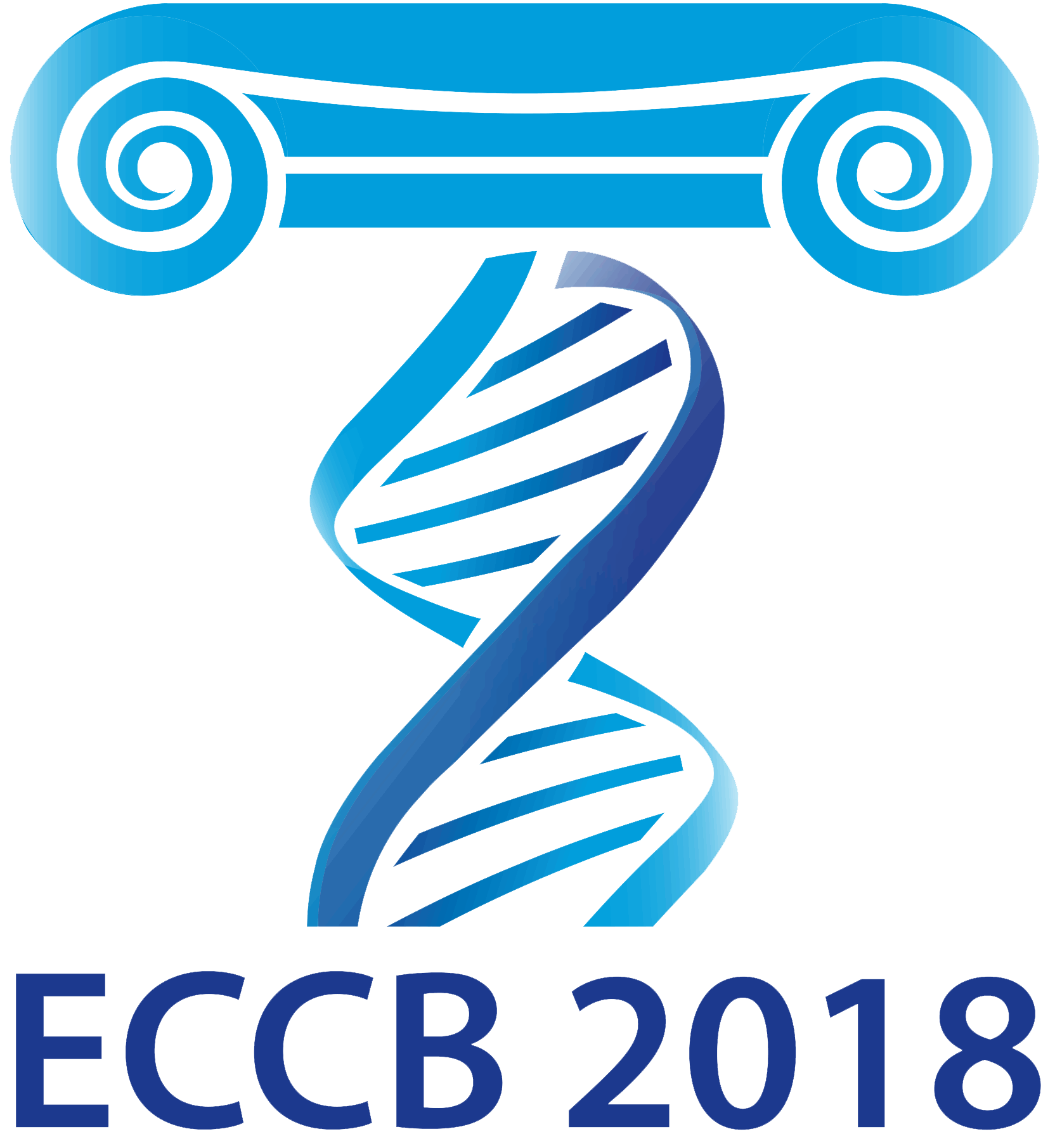
Biozentrum-the new building- University of Basel
Spitalstrasse 41
4056 Basel, Switzerland

BioNetVisA 2018 workshop
From biological network reconstruction to data visualization and analysis in molecular biology and medicine
The final programme and the abstract booklet are available here
The workshop presentations are available here
BioNetVisA workshop brings together different actors of network biology from database providers, networks creators, computational biologists, biotech companies involved in data analysis and modeling to experimental biologists, clinicians that use systems biology approaches. The participants are exposed to the different paradigms of network biology and the latest achievements in the field.
Motivation
The goal of BioNetVisA workshop is to build a discussion around various approaches for biological knowledge formalisation, data integration and analysis; compatibility between different methods and biological networks resources available the field; applicability for concrete research and clinical projects depending on scientific question and type of high-throughput data.
The BioNetVisA workshop aims at identifying bottlenecks and proposing short- and long-term objectives for the community as discussing questions about accessibility of available tools for wide range of user in every-day standalone application in biological and clinical labs. In addition, the possibilities for collective efforts by academic researchers, clinicians, biotech companies and future development directions in the field will be discussed during the round table panel.
BioNetVisA 2018 programme
| 09:00 - 10:30 Session 1: Signalling and metabolic network resources |
| Chair: Vassili Soumelis |
| 09:00 - 09:20 Antonio Fabregat EMBL-EBI, Hinxton, UK The Reactome Pathway Knowledgebase Abstract |
| 09:20 - 09:40 Cristobal Monraz Gomez Institut Curie, Paris, France Atlas of Cancer Signaling Network: a resource of multi-scale biological maps to study disease mechanisms Abstract |
| 09:40 - 10:05 Joaquin Dopazo Fundación Progreso y Salud, Seville, Spain Navigating through disease maps Abstract |
| 10:05 - 10:30 Augustin Luna Dana-Farber Cancer Institute/Harvard University, Boston, United States Access and Discover Biological Pathway Information from Pathway Commons Abstract |
| 10:30 - 11:00 Coffee break |
| 11:00 - 12:30 Session 2: Platforms and methods for analysis of complex networks |
| Chair: Yvan Saeys |
| 11:00 - 11:25 Georgios Pavlopoulos Biomedical Sciences Research Center "Alexander Fleming", Athens, Greece Using HipMCL, a high-performance parallel implementation of the Markov clustering algorithm, to understand microbial diversity Abstract |
| 11:25 - 11:50 Anna Niarakis GenHotel EA3886, Univ Evry, Université Paris-Saclay, France Disease Networks - Reconstruction, Topology, Dynamics. Towards an automated pipeline from static representations to executable disease models Abstract |
| 11:50 - 12: 10 Barbara Shih The Roslin Institute and Royal (Dick) School of Veterinary Studies, the University of Edinburgh, Easter Bush, Midlothian, Edinburgh, UK A platform for the network assembly and visual analysis of transcript isoforms from short-read RNA-sequencing data Abstract |
| 12:10 - 12:30 Warren W Kretzschmar KTH Royal Institute of Technology, Stockholm, Sweden Multicolored De Bruijn graph visualization of first, second, and third generation RNA-seq offers deeper insight into transcript isoforms in Picea abies Abstract |
| 12:30 - 13:30 Lunch |
| 13:30 - 15:00 Session 3: Biological networks in single-cell data analysis |
|---|
| Chair: Augustin Luna |
| 13:30 - 13:55 Yvan Saeys ISAC Lecture VIB-Ghent University, Gent, Belgium Inferring dynamic regulatory networks from single cell data Abstract |
| 13:55 - 14:20 Andrei Zinovyev Institute Curie, Paris, France Biological networks help unraveling tumoral heterogeneity at single cell level Abstract |
| 14:20 - 14:40 Anirudh Patir The University of Edinburgh, Edinburgh, UK Evaluation of network methods for the analysis scRNA-seq data and development of a new KNN-based method based on identified caveats Abstract |
| 14:40 - 15:00 Vassili Soumelis Institut Curie, Cancer Immunotherapy Center, Paris, France Immune cell diversification in response to a single stimulus: from single cells to subsets and back Abstract |
| 15:00 - 15:30 Coffee break |
| 15:30 - 17:00 Session 4: Biological network in drug repositioning and disease comorbidity |
|---|
| Chair: Joaquin Dopazo |
| 15:30 - 16:15 Alfonso Valencia Keynote Lecturer Barcelona Supercomputing Center, Barcelona, Spain A patient centred disease comorbidity network |
| 16:15 - 16:35 Celine Hernandez Institut de Biologie de l’Ecole Normale Supérieure, Paris, France Dynamical modelling of T cell co-inhibitory pathways to predict anti-tumour responses to checkpoint inhibitors Abstract |
| 16:35 - 16:55 Sven Bergmann University of Lausanne & Swiss Institute of Bioinformatics, Switzerland Open Community Challenge Reveals Molecular Network Modules with Key Roles in Diseases Abstract |
| 16:55 - 17:15 Josephine Daub Princess Máxima Center for Pediatric Oncology, Utrecht, The Netherlands Genetic interactions in childhood cancer Abstract |
Graphical representation of biological knowledge
Pathway and network resources
Networks annotation and curation
Multi-omics data visualization and analysis in the context of networks
Network modelling
Basic research and clinical application of networks
Microbiome and networks
Networks for single-cell data interpretation
Metabolomics and networks
Networks applications for drug repositioning
Networks in disease comorbidity studies
Scope
Development, curation and maintenance of biological network resources
Data models from interaction to pathway and network, available tools for the integration of new discoveries into existing signalling diagrams. Discussion of curation models from map manager-oriented to community-based update using web-tools and forums.
Cell signalling knowledge representation paradigms
From interaction to single pathways representation to comprehensive signalling networks: discussion of modes of biological processes representation; granularity, coverage, sources of information, annotation modes, cross-citations between different signalling networks resources, etc. Standard for graphical representation and data formats.
Visualization of data through networks
Paradigms of visualization of different types of high-throughput data on a network map. Data integration with a map. Methods compatibility with different paradigms of signalling networks reconstruction in various databases and resources.
Analytical tools for network biology
Tools for network analysis and manipulation, network modeling, network-based statistics. Studying network activation and inhibition, feedbacks and compensations, synthetic interactions.
Applications of networks in multi-omics data analysis in biomedical research and in clinics
Studies on single-cell data, microbiome, metabolomics and other omics data analysis, disease
comorbidity, drug response prediction using network-based approaches.
Registration
The registration has to be performed via the ECCB website
Organising committee
Inna Kuperstein (Institut Curie, France)
Emmanuel Barillot (Institut Curie, France)
Andrei Zinovyev (Institut Curie, France)
Luis Cristobal Monraz Gomez (Institut Curie, France)
Hioraki Kitano (RIKEN Center for Integrative Medical Sciences, Japan)
Minoru Kanehisa (Institute for Chemical Research, Kyoto University, Japan)
Samik Ghosh (Systems Biology Institute, Tokyo, Japan)
Robin Haw (Ontario Institute for Cancer Research, Canada)
Alfonso Valencia (Spanish National Bioinformatics Institute, Madrid, Spain)
Lodewyk Wessels (Netherlands Cancer Institute, Amsterdam, Netherlands)
Patrick Kemmeren (Princess Maxima Center for Pediatric Oncology, Utrecht, Netherlands)
